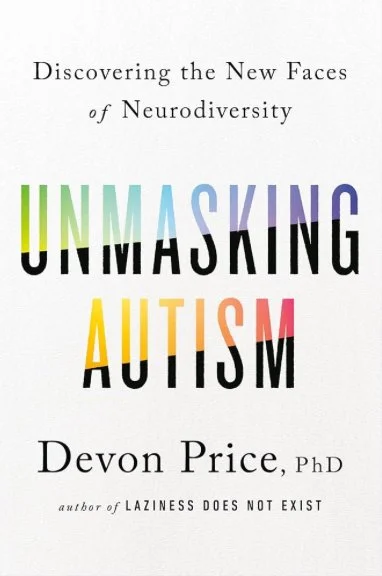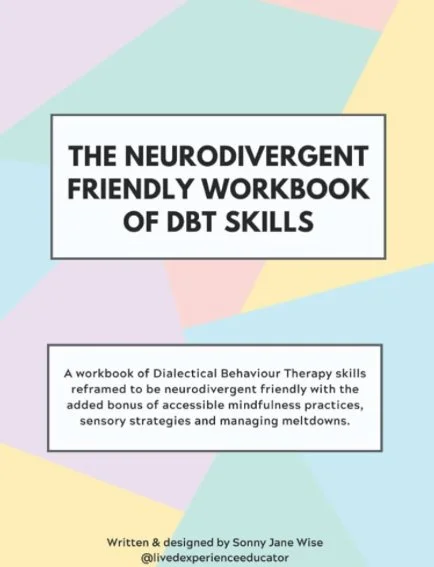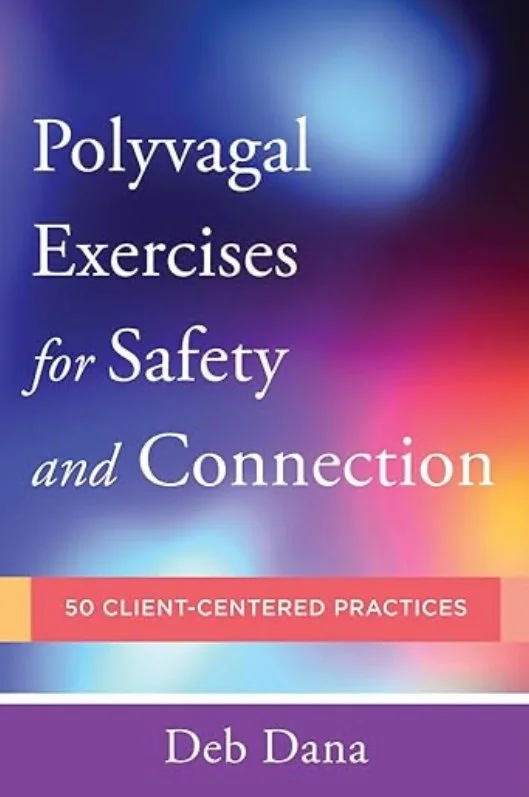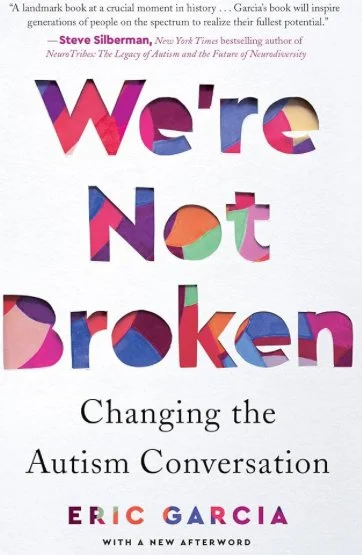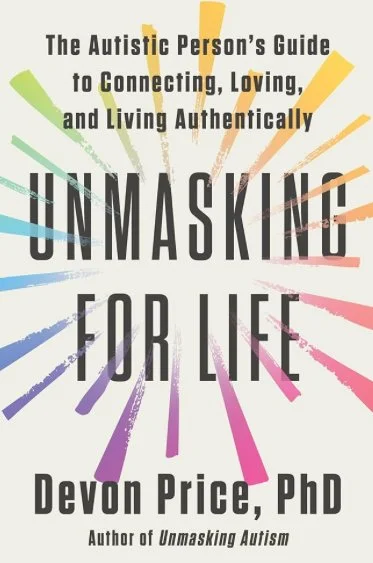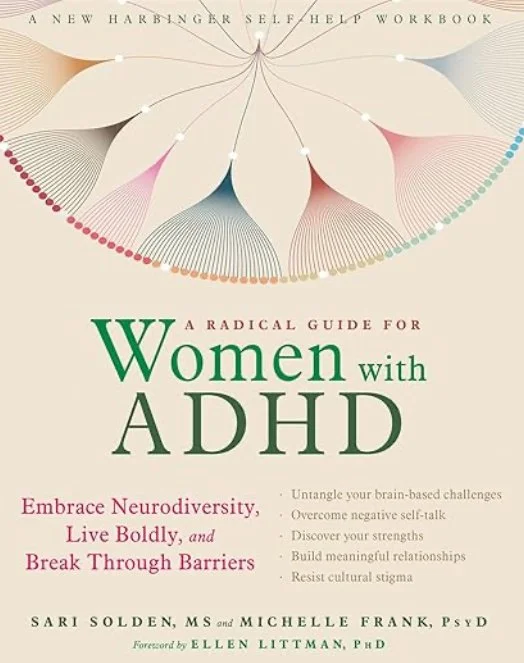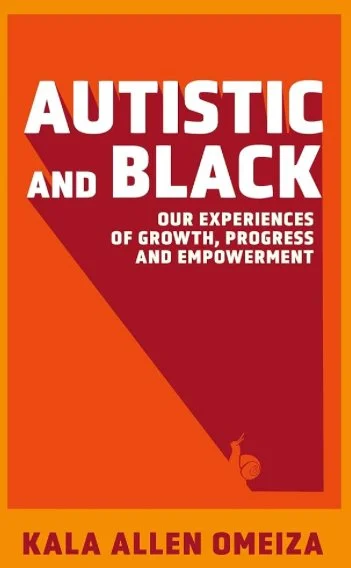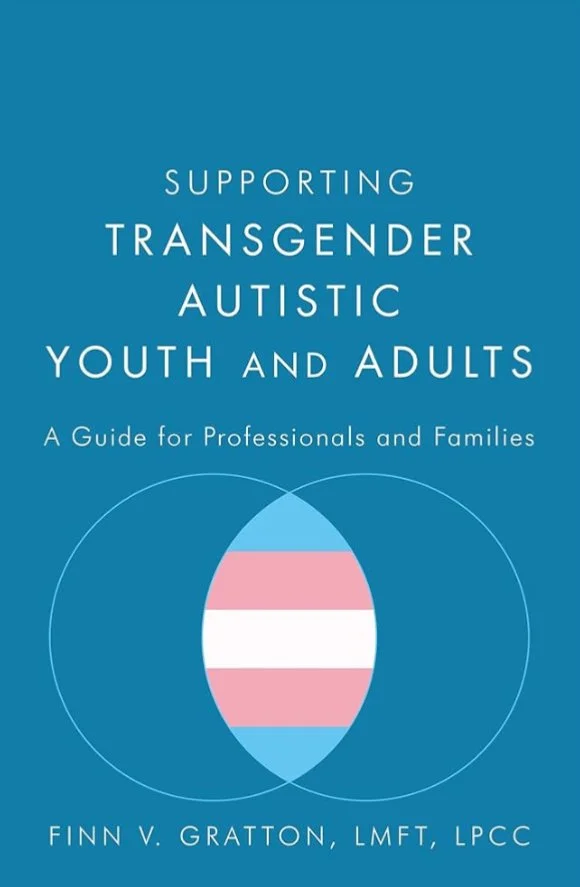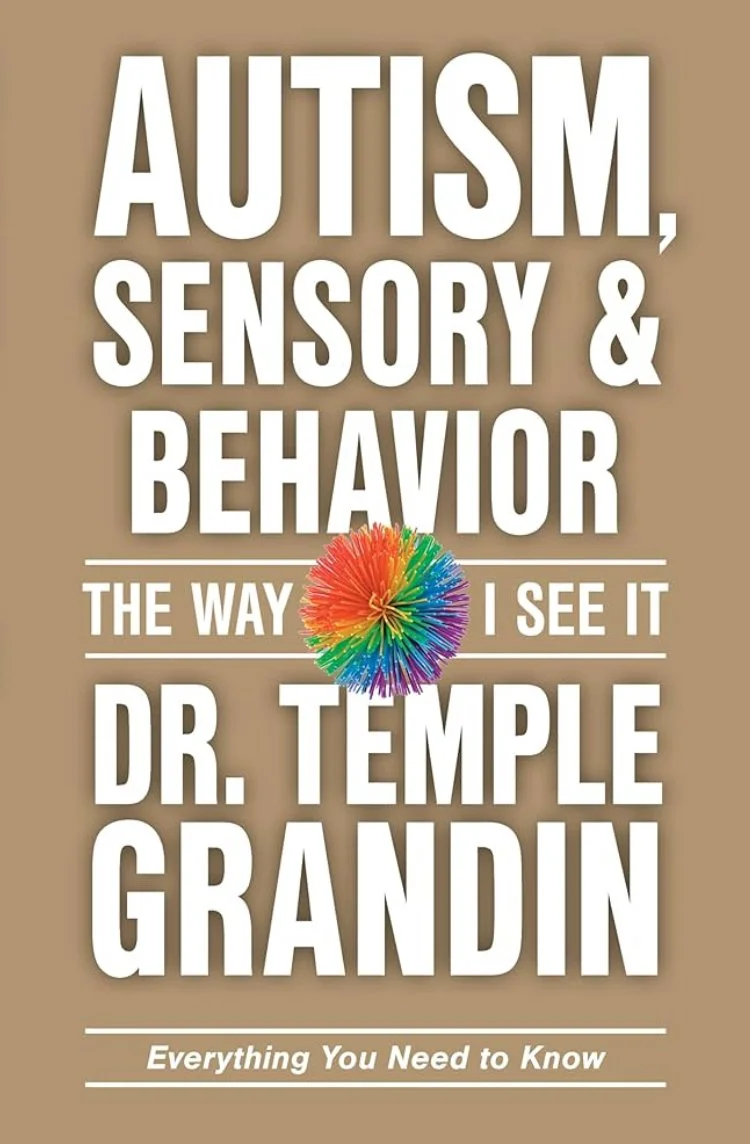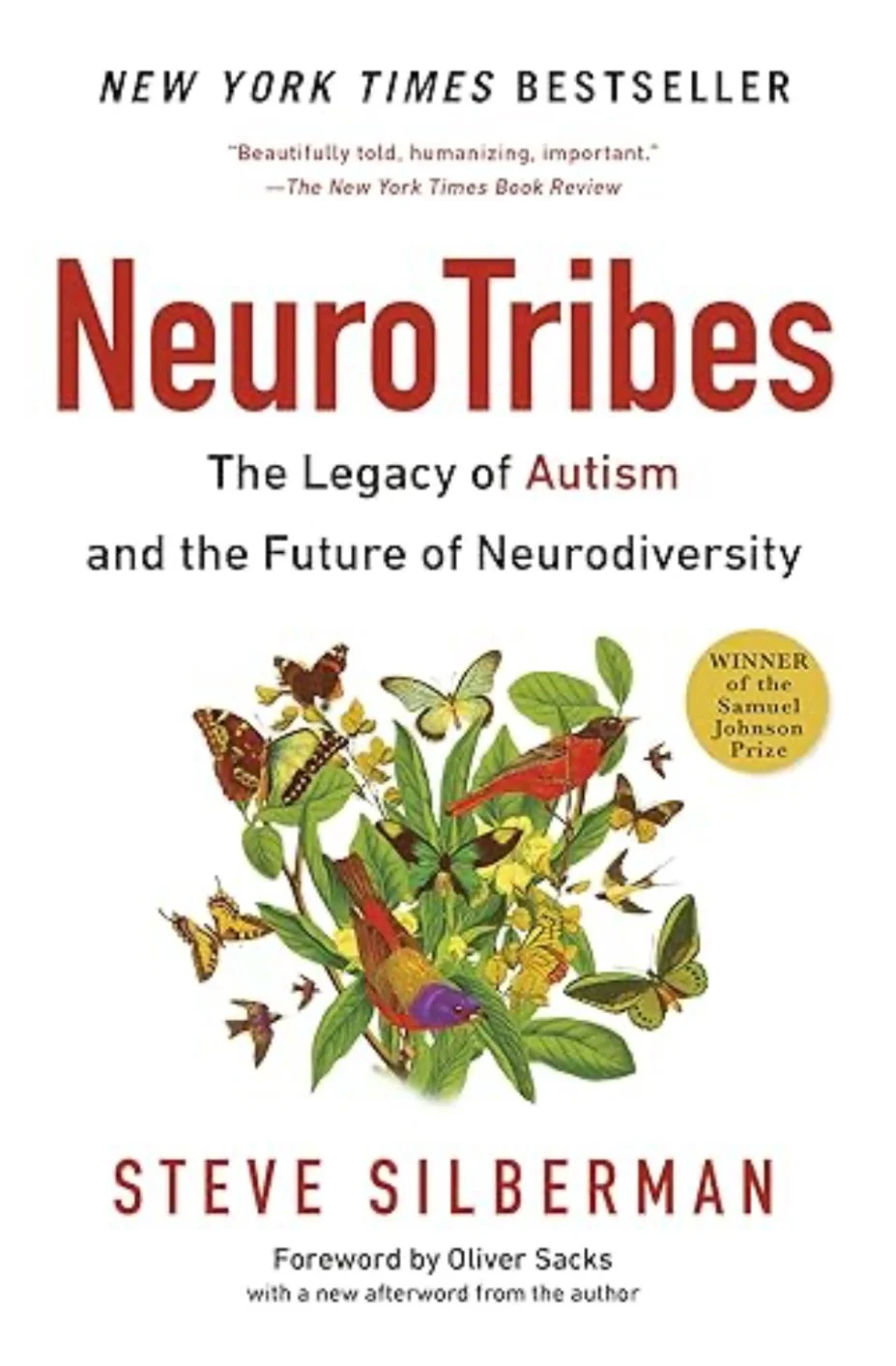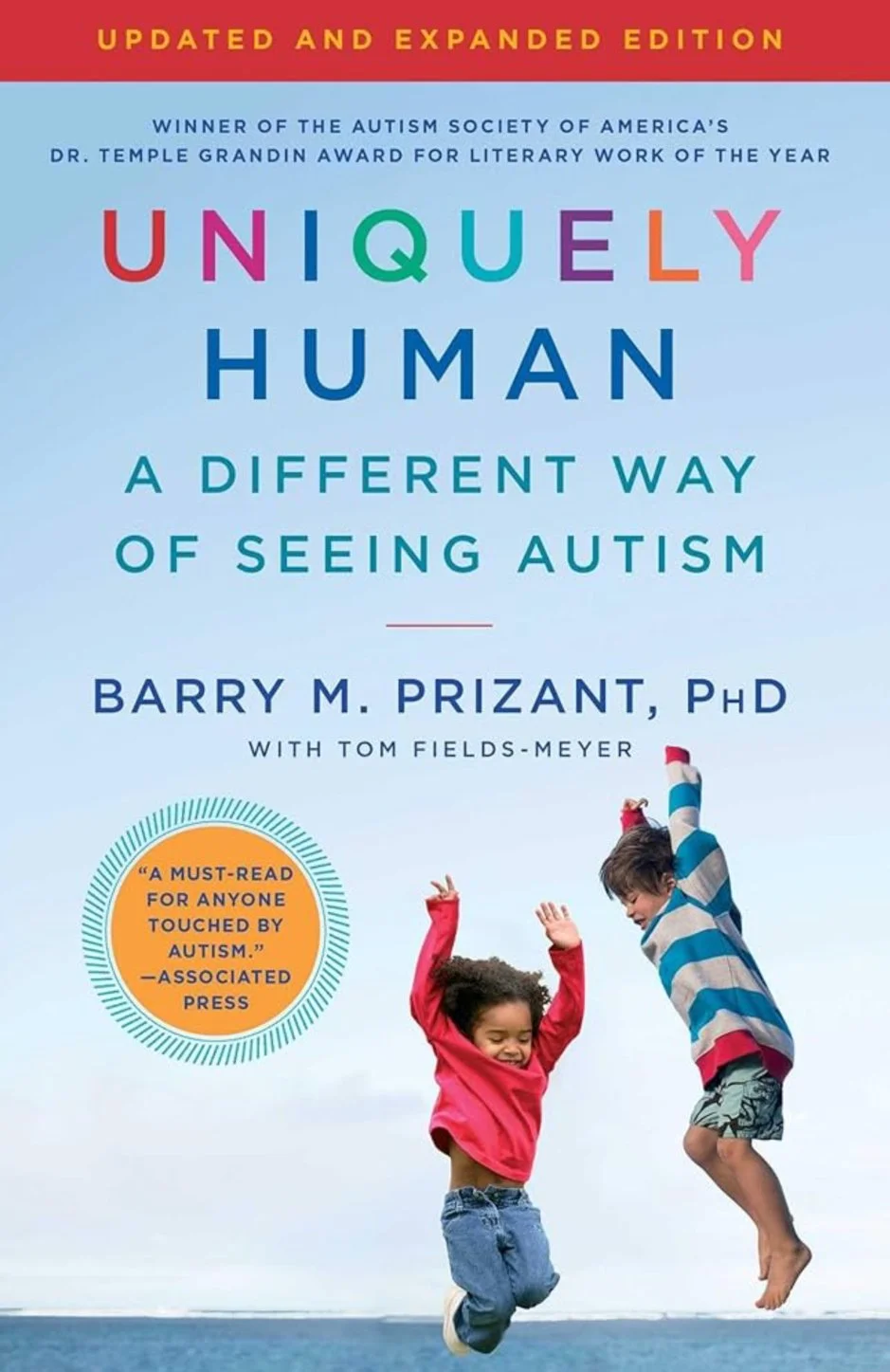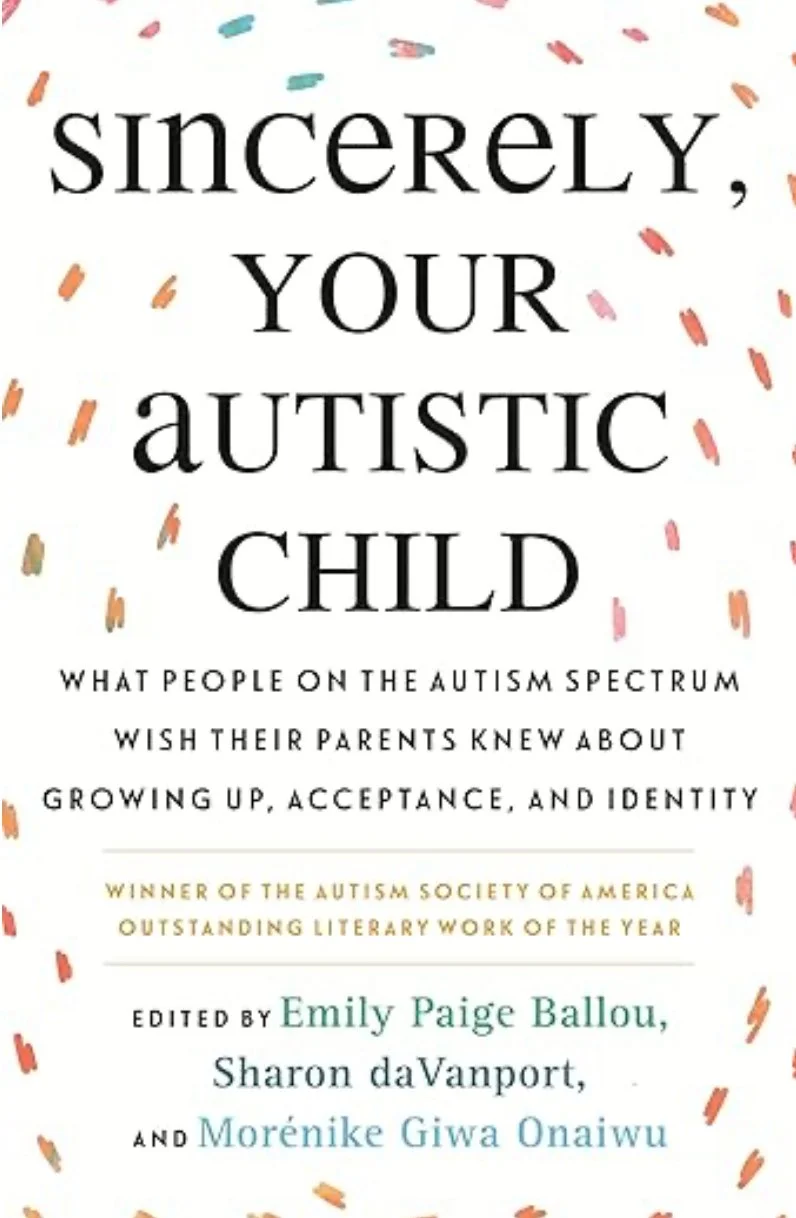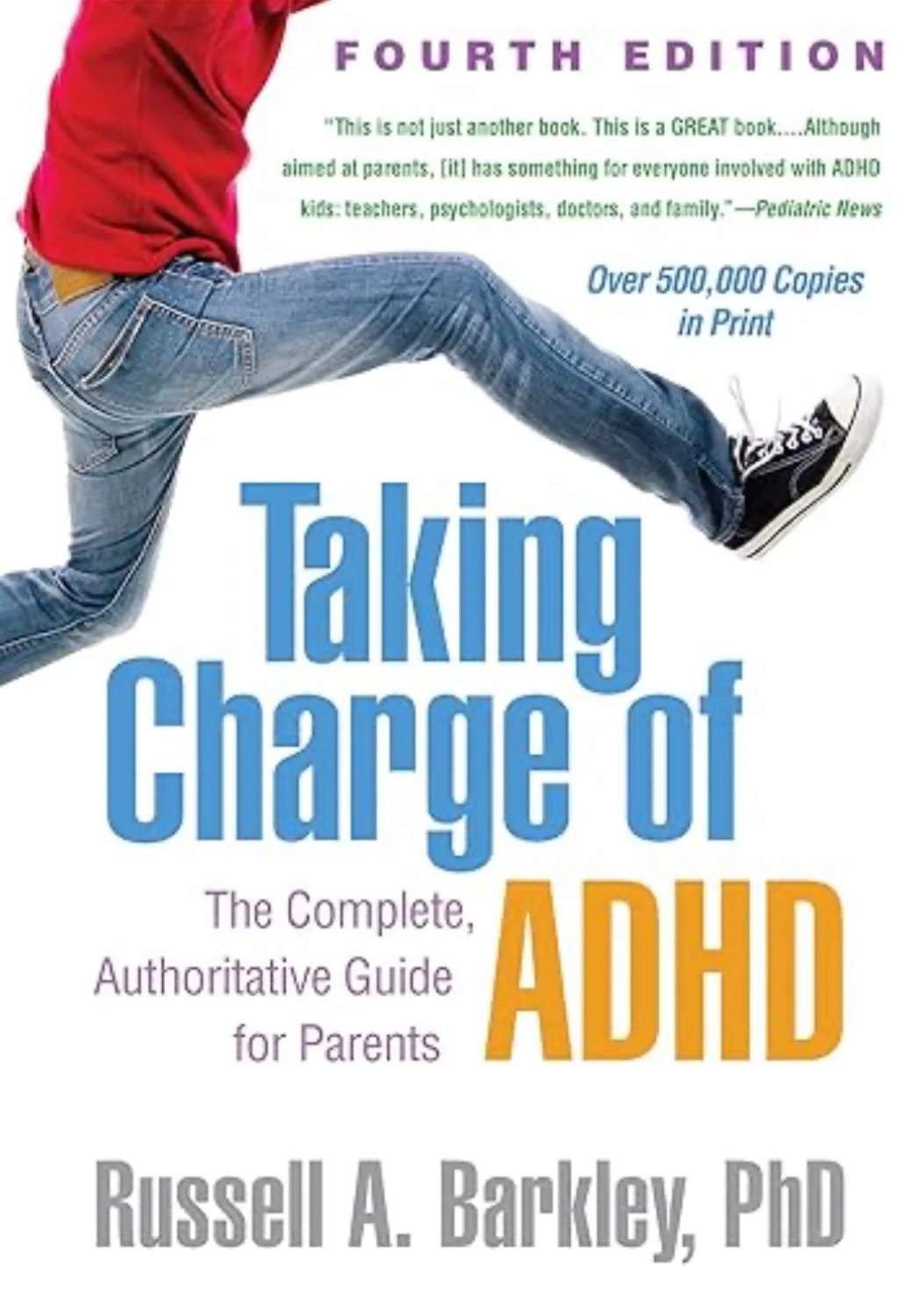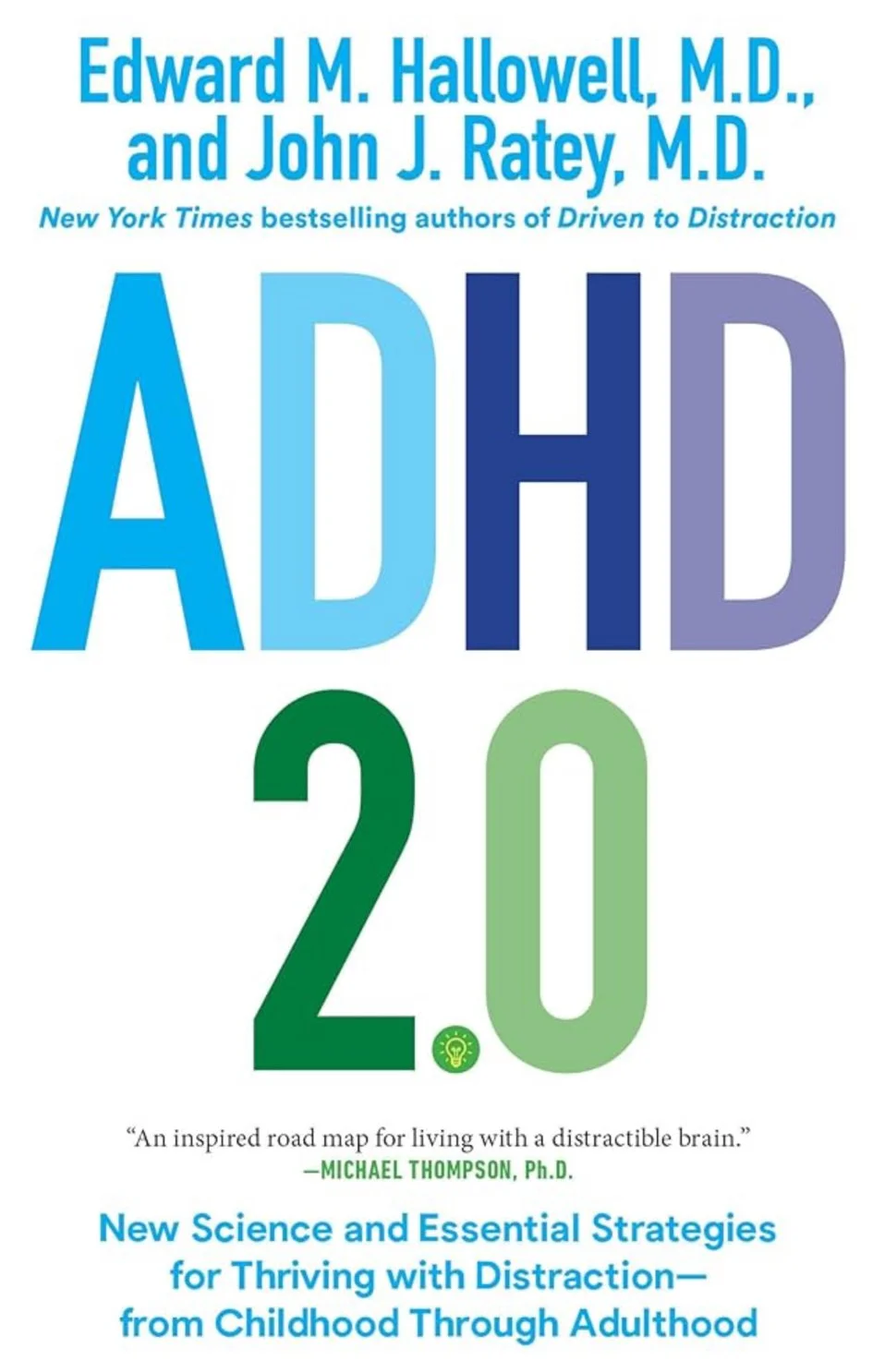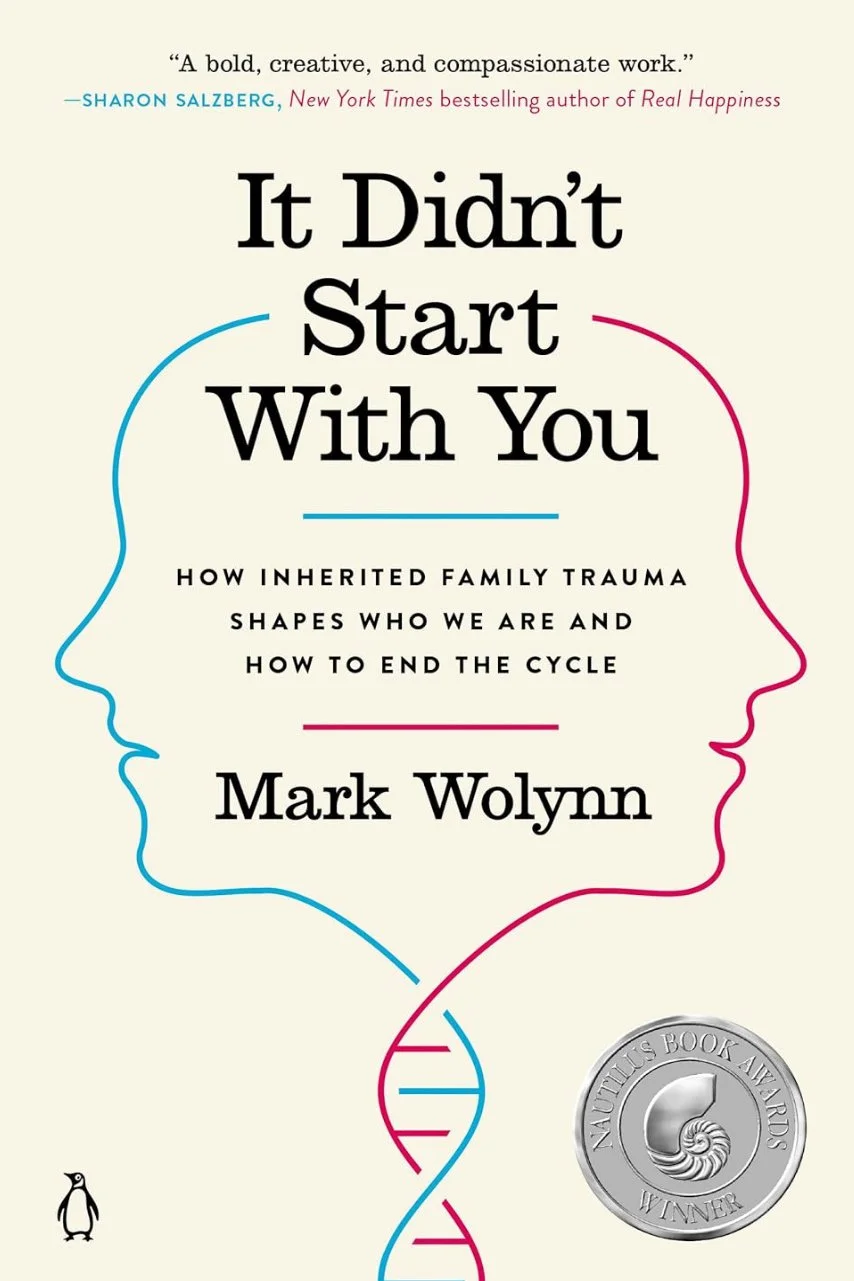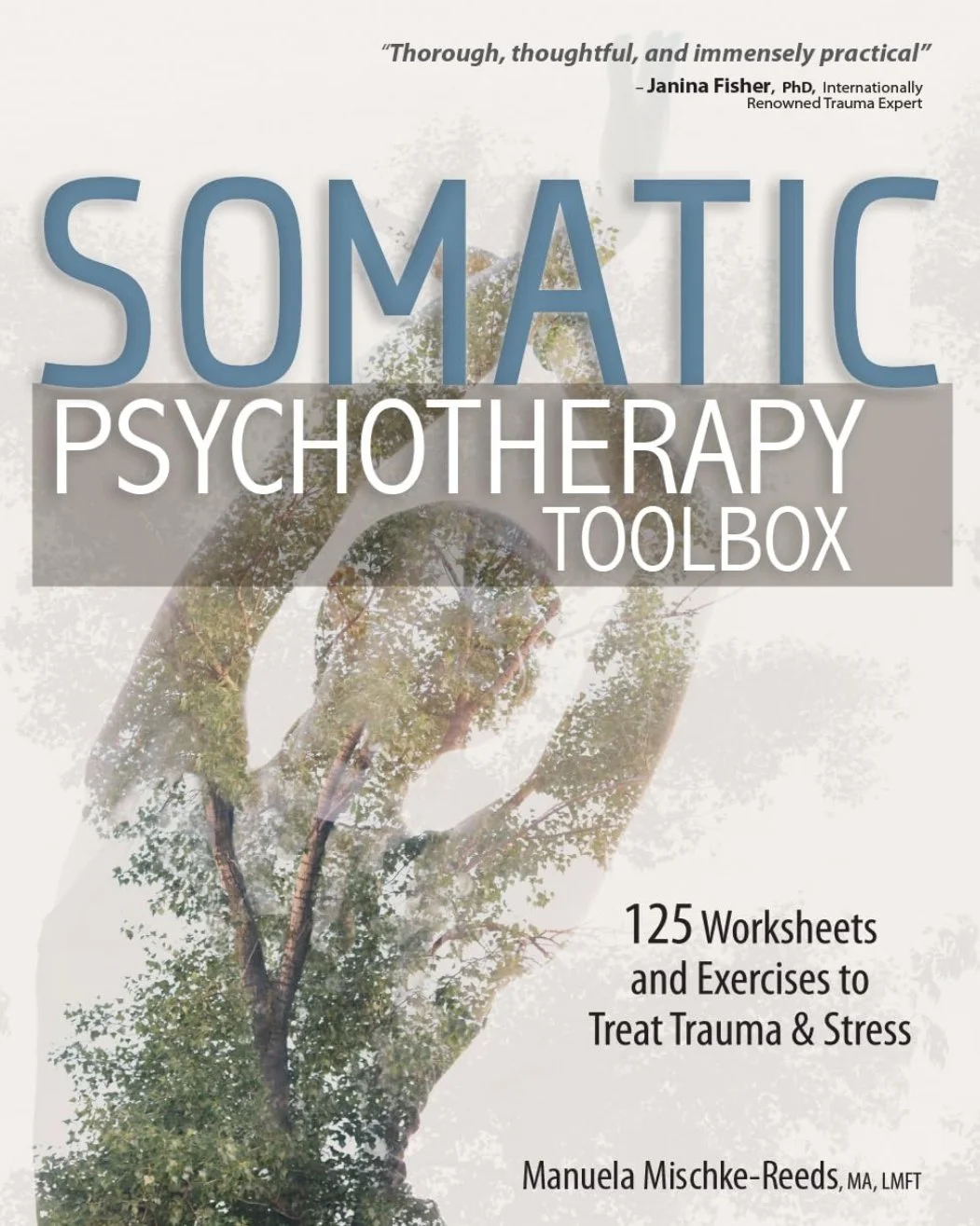I have so many questions and don’t know where to find the answers.
You’re not alone—and you don’t have to figure it out all by yourself. Whether you’re looking for support, trying to understand an evaluation, navigating services, or just beginning to explore what neurodiversity means for you or your family, I’m here to help.
Explore the resources and if you’re still uncertain or can’t find what you need, you’re welcome to reach out to me directly.
-
Resources:
NYC: https://portal.311.nyc.gov/search/?q=Crisis
Upstate NY:
https://www.211newyork.org/reentry-resource-directory
NJ: https://nj211.org/resource-search/Mental%20Health%20Crisis%20Lines?source=guided
Mental Health & Emotional Support
Your therapist, counselor, or psychiatrist: They can help with managing overwhelm, burnout, anxiety, and any mental health concerns.
Primary care doctor or specialist: For medication questions, referrals, or general wellness support.
Personal Support System
Trusted family members, friends, or partners: Talk to someone who knows and respects your neurodivergence.
Support groups (in-person or online): These can provide connection, validation, and shared coping strategies.
Systems Navigation
Social worker, care coordinator, or case manager: If assigned, they can help with school, work, benefits, housing, or disability services.
School/Work contacts: Disability support office (college), HR/ADA coordinator (work), or IEP/504 coordinator (school).
If You Do Not Have a Support System Yet:
You can still reach out to the following for starting support and building your network:
Mental Health & Emotional Support
Find a therapist (self-search):
Inclusive Therapists – prioritizes neurodivergent-affirming, trauma-informed, and culturally responsive care
Psychology Today – filter by autism, sliding scale, telehealth, identity
Open Path Collective – affordable therapy ($30–$60/session)
In crisis?
Call or text 988 – 24/7 Suicide & Crisis Lifeline (U.S.)
Crisis Text Line: Text HOME to 741741
Local emergency or mental health hotline: In your area, often through a county or state website
Community and Advocacy Support
Autistic-led organizations that affirm identity and offer resources:
Autistic Self Advocacy Network (ASAN)
NeuroClastic
Autism Support Network
Online peer spaces: Reddit (e.g., r/Autism), Discord servers, or Facebook groups for autistic adults.
Practical Help
Local Center for Independent Living (CIL): They assist with disability rights, housing, and services.
State disability services: Apply for services like Medicaid waivers or case management.
Daily Living, Disability & Practical Help
Find your local Center for Independent Living (CIL):
https://www.ilru.org/projects/cil-net/cil-center-and-association-directory
Free support for people with disabilities: housing, benefits, job help, advocacy
State developmental disability services:
Search “[your state] office for developmental disabilities”
Can help you apply for Medicaid waivers, case management, or home support (especially if you have high support needs)
Find a case manager or advocate:
Contact local disability nonprofits or autism foundations
Some cities have mental health ombudsmen or disability rights centers
Educational or Workplace Accommodations (If Needed)
College/University?
Contact the Disability Services Office to request accommodations.
At Work?
Contact Human Resources or the ADA coordinator
You do not need a formal diagnosis to request accommodations under the ADA
-
Resources:
NY-OPWDD: https://opwdd.ny.gov/get-started/front-door
NJ-DDS: https://share.google/sPHhPS7WuKZ1tU4q0
FL-APD: https://share.google/cOSr4DjE0EQxJbirV
SSI/SSD: https://www.ssa.gov/disability/disability.html
Licensed Psychologist (PhD or PsyD)
Accepted for:
Social Security (SSI/SSDI)
Medicaid Waivers
OPWDD (New York)
APD (Florida)
DDS (New Jersey Division of Developmental Disabilities)
Can do:
Full diagnostic evaluations using DSM-5-TR
IQ testing (e.g., WAIS, WISC, Stanford-Binet)
Adaptive functioning testing (e.g., Vineland, ABAS)
Documentation required for state disability eligibility
Notes:
Often has longer waitlists
Can be expensive unless covered by insurance or state programs
Psychiatrist (MD or DO)
Accepted for:
SSI/SSDI
Medicaid (general)
May be accepted as supporting documentation for OPWDD, DDS, or APD
Can do:
Diagnosis of autism and/or ADHD
Prescribe medication
Write summary letters of clinical findings
Limitations:
Typically does not conduct IQ or adaptive testing
Documentation alone often not sufficient for DDS/OPWDD/APD
Licensed Clinical Social Worker / Mental Health Counselor (LCSW, LMHC, LPC)
May support:
Medicaid services
SSI/SSDI (as supporting evidence)
Can do:
Diagnosis in many states
Provide documentation of therapy history and functional limitations
Limitations:
Reports usually not accepted alone for DDS, OPWDD, or APD
May need to refer out for psychological testing
SSA-Scheduled Consultative Exam (CE)
Accepted for:
SSI/SSDI only
Can do:
Brief diagnostic assessment scheduled by SSA if you don’t have documentation
Limitations:
Not comprehensive
Not valid for DDS (NJ), OPWDD (NY), or APD (FL)
You don’t choose the provider
What Must Be Included in Your Evaluation (For All Programs)
DSM-5-TR Diagnosis
Clear diagnosis of Autism Spectrum Disorder and/or ADHD
Onset Before Age 22
Required by DDS (NJ), OPWDD (NY), APD (FL), and Medicaid waiver programs
Standardized Testing Results
Cognitive: WAIS-IV, WISC-V, Stanford-Binet
Adaptive: Vineland-3, ABAS-3
Functional Limitations in Daily Life
Documented impairments in:
Social skills
Self-care or daily living
Executive functioning
Communication
Evaluator Credentials
Must be a licensed psychologist or qualified physician for DDS, OPWDD, or APD approval
-
Resources:
https://www.ed.gov/laws-and-policy/individuals-disabilities/idea
https://www.hesc.ny.gov/about/hesc-reasonable-accommodations
1. Know Your Rights
You are protected by:
The ADA (Americans with Disabilities Act)
Section 504 of the Rehabilitation Act
IDEA (for K–12 students with IEPs)
FMLA (for medical leave)
State disability agencies, such as:
OPWDD-NY
DDS-NJ
APD-FL
2. Clarify Your Needs
Identify areas where you experience challenges (e.g., sensory sensitivity, executive functioning, social communication, etc.)
Think about what supports would help you participate fully
Examples of accommodations:
Flexible schedule or deadlines
Sensory-friendly environment
Written vs. verbal communication
Extended test time or alternative formats
3. Gather Documentation (If Needed)
You do not always need to disclose your exact diagnosis
Documentation usually just needs to:
State that you have a disability
Describe how it functionally impacts you
List or recommend accommodations
A healthcare provider, evaluator, or therapist can write this
4. Make Your Request in Writing
Include:
A statement that you’re requesting accommodations under the ADA (or Section 504)
A brief explanation of how your condition affects your ability to perform tasks
The specific accommodations you’re requesting
5. Send It to the Right Contact
Employment: Human Resources or ADA Coordinator
College/University: Disability Services or Access Center
K–12 School: 504 or IEP coordinator
Government Services (OPWDD, APD, DDS): Submit as part of application or speak to your assigned service coordinator
6. Keep a Record & Follow Up
Save emails, letters, and forms
Document names, dates, and decisions
If denied, request the denial in writing and ask about appeal options
Do I Have to Disclose My Diagnosis?
Short Answer: No, not always.
Under the ADA, you are only required to:
Establish that you have a disability (a condition that substantially limits one or more major life activities)
Explain how it affects your functioning
Show why the accommodation is needed
You do not have to name your diagnosis (like “autism” or “ADHD”) unless a specific agency or process requires it (e.g., Social Security Disability or OPWDD/Medicaid eligibility often does).
1. Workplace Accommodation Request (Without Naming Diagnosis)
Subject: Request for Reasonable Accommodations
Dear [Supervisor/HR/ADA Coordinator],
I am writing to formally request reasonable accommodations under the Americans with Disabilities Act (ADA). I experience a disability that impacts [describe the area of difficulty, e.g., concentration, sensory regulation, communication, executive functioning].
To support my ability to perform my job effectively and sustainably, I am requesting the following accommodations:
· [List accommodation #1]
· [List accommodation #2]
I am happy to provide supporting documentation if needed. Please let me know the next steps in this process.
Thank you for your time and consideration.
Sincerely,
[Your Name]
2. College or University Disability Services (With or Without Diagnosis)
Subject: Request for Academic Accommodations
Dear [Disability Services Coordinator’s Name],
I am a student at [University Name] and would like to request reasonable academic accommodations under Section 504 of the Rehabilitation Act and the Americans with Disabilities Act.
I experience a condition that significantly affects [e.g., focus, sensory processing, social interaction, task management]. To ensure equal access to my education, I am requesting accommodations such as:
· [List accommodation #1]
· [List accommodation #2]
I can provide documentation from my healthcare provider or evaluator to support my request. Please let me know the appropriate process and any forms I should complete.
Thank you for your support.
Sincerely,
[Your Name]
[Student ID, if applicable]
3. Disability Services (e.g., OPWDD in NY, APD in FL, DDS in NJ)
*Contact your state agency first to determine if there is an option to apply online.
Subject: Request for Disability Accommodations and Services
Dear [Agency or Coordinator’s Name],
I am seeking support through [name of agency] due to long-standing challenges with [brief description, e.g., communication, executive functioning, emotional regulation, or other life skills]. These challenges significantly affect my ability to live independently and access services.
I am requesting:
· An eligibility evaluation or intake appointment
· Support with applying for [Medicaid Waiver/Residential Services/Day Programs/etc.]
· Accommodations to help me understand and navigate the process (e.g., plain language communication, support person present, extra processing time)
I am open to providing documentation from a qualified provider and would like to know what is needed. Thank you for your assistance.
Sincerely,
[Your Name]
[DOB, Address, or other required ID info]
-
What an LCSW Evaluation Can Be Used For
Clinical Treatment Planning
Individual, family, or couples therapy
Psychiatric referrals
Case management or coordination of care
Personal Understanding / Self-Knowledge
Identity development (e.g., understanding neurodivergence)
Communication tools for family, partners, employers
Accessing affirming coaching or peer support groups
Accommodations
Workplace (ADA):
Flexible schedule
Sensory supports
Modified communication expectations
College or Grad School:
Extended test time
Reduced-distraction setting
Disability Resource Center services
Standardized Exams:
GRE, LSAT, MCAT, BAR, etc. accommodations
Insurance & Private Services:
Therapy or psychiatry referrals
Documentation for ADHD medication (depending on prescriber)
Reimbursement for out-of-network services
Community Programs:
Neurodivergent support groups
Social communication programs
Community mental health resources
What It May Not Be Accepted For — or May Require Additional Evaluation
School-Based Services (IEP or 504 Plan)
Often requires school psychologist or multidisciplinary team evaluation
Social Security Disability (SSI/SSDI)
Usually needs documentation from a psychologist or physician (PhD/MD)
State Developmental Disability Services
Examples:
OPWDD=NY
DDS-NJ
APD-FL
-Typically require diagnostic evaluation by a licensed psychologist or MD
-May require tools like ADOS, cognitive testing, or Vineland
Psychoeducational or Neuropsychological Testing
Cognitive/IQ testing and learning disorder diagnosis must be done by a licensed psychologist or neuropsych
-
1. Primary Focus
ADHD Coach:
Executive functioning
Time management
Organization and productivity
Accountability and action-taking
Therapist:
Emotional regulation
Trauma, mental health, and co-occurring conditions
Identity and relationships
Internal patterns that impact functioning
2. Goals
ADHD Coach:
Develop and sustain systems and habits
Improve follow-through and reduce overwhelm
Therapist:
Address root causes of emotional distress
Promote self-understanding and healing
Treat mental health concerns
3. Approach
ADHD Coach:
Practical, skills-based, collaborative
Forward-focused and goal-oriented
Therapist:
Clinical and therapeutic
May include present and past-focused work
Includes emotional processing and insight-building
4. Training and Credentials
ADHD Coach:
May have certification from ADHD coaching programs (e.g., ADDCA)
Not a licensed mental health provider
Therapist:
Licensed professional (e.g., LCSW, LPC, LMFT, psychologist)
Supervised clinical training and credentialing
5. Diagnostic Ability
ADHD Coach:
Cannot diagnose ADHD or other conditions
Therapist:
Can assess and diagnose ADHD and other mental health conditions (if licensed and within scope)
6. Treatment of Co-Occurring Conditions
ADHD Coach:
Does not treat anxiety, trauma, depression, etc.
Therapist:
Can treat co-occurring mental health conditions
7. Insurance Coverage
ADHD Coach:
Generally not covered by insurance
Therapist:
Often covered by insurance depending on licensure and plan
8. Support Style
ADHD Coach:
Offers check-ins, strategy implementation, and accountability
Therapist:
Provides a safe space for deeper reflection, emotional healing, and clinical insight
-
Master’s-Level Clinician
(e.g., LCSW, LMHC, LPC, LMFT)
A. What They Offer
Individual, family, and couples therapy
Psychoeducation and emotional support
Behavioral strategies and life skills coaching
Support navigating systems like:
IEP/504 plans
SSI and Medicaid
Developmental disability services
May provide diagnostic evaluations (if trained)
B. How They Help Autistic or ADHD Individuals
Neurodiversity-affirming and trauma-informed approach
Builds long-term therapeutic relationships
Supports executive functioning, emotional regulation, and daily routines
Provides family support and care coordination
Psychologist
(PhD or PsyD)
A. What They Offer
Comprehensive diagnostic evaluations for:
Autism
ADHD
Learning disabilities
Co-occurring mental health concerns
Cognitive and neurodevelopmental testing
Individual or family therapy
Written evaluation reports for:
School accommodations
Workplace supports
Disability services
B. How They Help Autistic or ADHD Individuals
Specialized in diagnostic clarity and complex profiles
Use of gold-standard assessment tools (e.g., ADOS-2, WISC, MIGDAS-2)
Insight into how thinking, learning, and emotions interact
Offers practical recommendations tailored to client needs
Psychiatrist
(MD or DO)
A. What They Offer
Psychiatric evaluations
Prescribing and monitoring medications for:
ADHD
Anxiety and depression
Mood regulation
May offer brief therapy or coaching
Care coordination for complex or crisis situations
B. How They Help Autistic or ADHD Individuals
Manages medication for focus, sleep, mood, and regulation
Treats co-occurring psychiatric conditions
Supports individuals with severe or urgent mental health concerns
Helps clarify when symptoms overlap with medical or psychiatric conditions
Which One Do I Need?
A. Common Needs and Who to See
Need: Medication for ADHD, anxiety, or depression
See: Psychiatrist
Need: Full diagnostic evaluation for autism or ADHD
See: Psychologist or trained Master’s-level clinician (e.g., LCSW)
Need: Weekly therapy from someone who understands neurodivergence
See: Master’s-level clinician or Psychologist
Need: Help navigating systems like IEPs, SSI, Medicaid, or developmental disability services
See: Master’s-level clinician
Need: Help understanding or interpreting a prior evaluation
See: Master’s-level clinician or Psychologist
-
Polyvagal Theory
Polyvagal-informed therapy focuses on understanding and regulating the nervous system, which can be especially helpful for neurodivergent individuals who often experience heightened sensory sensitivity, emotional dysregulation, and chronic stress.
How It Helps:
Nervous system education: Teaches clients to recognize their own physiological states (e.g., shutdown, fight/flight, social engagement).
Co-regulation and safety: Builds safety in relationships by fostering trusting therapeutic environments, crucial for those with trauma or sensory overwhelm.
Self-regulation tools: Helps clients develop personalized strategies (e.g., breathing, movement, vocalization) to shift states and reduce anxiety or shutdown.
Validates atypical responses: Acknowledges that autistic and ADHD nervous systems may operate differently—not wrongly.
Somatic Therapies
Somatic therapies focus on the body’s role in processing emotions and trauma. For neurodivergent individuals who may struggle with interoception (sensing internal states) or alexithymia (difficulty identifying emotions), this work can be empowering.
How It Helps:
Body awareness: Supports understanding of sensory needs and emotional experiences through movement, posture, and sensation.
Grounding practices: Assists with sensory regulation, particularly during overload or shutdown.
Discharge trauma responses: Provides non-verbal ways to process trauma and chronic dysregulation.
Supports communication: Especially helpful for those who find verbal processing overwhelming or limited.
Dialectical Behavior Therapy (DBT)
DBT combines cognitive-behavioral techniques with mindfulness and acceptance strategies. When tailored for neurodivergent minds, it can address executive functioning challenges, emotional regulation, and interpersonal difficulties.
How It Helps:
Emotion regulation: Offers concrete skills to manage intense emotions without judgment.
Distress tolerance: Provides tools for surviving overwhelming situations without shutting down or acting impulsively.
Interpersonal effectiveness: Supports clearer boundary-setting, self-advocacy, and navigating relationships (e.g., masking, rejection sensitivity).
Mindfulness skills: Helps build present-moment awareness and self-compassion in overstimulating environments.
-
Accommodations must be approved through your college’s disability services office and vary by institution, available resources, and documentation provided.
Academic Accommodations
Extended time on exams (e.g., 1.5x, 2x)
Reduced-distraction or private testing environment
Use of a calculator, formula sheet, or word processor
Access to class notes or a note-taker
Permission to record lectures
Priority seating (e.g., near door, front row)
Breaks during exams or class
Alternate format textbooks (PDF, large print, audio)
Deadline extensions for assignments (with advance notice or as-needed)
Modified attendance policy (flexibility for disability-related absences)
Substitute assignments for inaccessible activities (e.g., oral presentations)
Use of assistive technology (e.g., text-to-speech, speech-to-text software)
Communication & Social Support
Access to a peer mentor or coach for support navigating campus life
Permission to use written communication (email, chat) instead of verbal
Social skills group or one-on-one coaching
Advance notice of group work with structured roles
Faculty education or liaison to increase understanding of the student’s needs
Executive Function & ADHD Support
Reminders for assignments or due dates (via app or staff)
Weekly check-ins with a disability coordinator or academic coach
Help with time management and planning tools
Flexible deadlines or late work forgiveness
Priority registration (to build a manageable schedule)
Housing Accommodations
Single room or private bathroom
Quiet dorm location (away from high-traffic areas)
Emotional support animal (ESA) in dorm
Air-conditioned housing (for sensory or medical needs)
Reduced occupancy suite or apartment-style housing
Live-in caregiver (if applicable)
Sensory & Environmental Support
Permission to wear noise-canceling headphones in class or testing
Access to quiet, low-stimulation study areas
Flexible classroom seating or lighting accommodations
Reduced lighting or screen filters for migraines/sensory needs
Mental Health & Medical Accommodations
Ability to leave class briefly and return without penalty
Access to counseling or on-campus mental health support
Health-related absences excused with notification (not documentation each time)
Use of mobility device or service animal on campus
Housing and academic emergency plans in place
Technology Access
Laptop or tablet use in class, even if not typically allowed
Smartpen or recording device for lectures
Software for reading/writing support (e.g., Grammarly, Kurzweil, Otter.ai)
Other Accommodations
Priority course registration
Reduced course load without loss of full-time status
Alternative formats for communication from professors (written vs. verbal)
Flexibility with participation requirements (e.g., camera off during virtual classes)
Gradual return to classes after a leave of absence
-
Resource: https://askjan.org/
Cognitive / Executive Functioning (e.g., ADHD, Autism, TBI)
Written instructions instead of verbal
Structured daily or weekly check-ins
Task management or reminder systems
Extra time for complex tasks
Flexible deadlines when possible
Clear, consistent routines and expectations
Communication / Sensory Needs (e.g., Autism, Anxiety)
Reduced participation in meetings or permission to join by video/audio only
Option to respond in writing (e.g., chat, email) instead of verbally
Noise-canceling headphones or private workspace
Fluorescent lighting modifications or natural lighting access
Option to use a screen filter or dark mode
Time and Schedule Flexibility (e.g., Chronic Illness, Fatigue, Anxiety)
Flexible start/end times
Work-from-home or hybrid options
Periodic rest breaks or pacing tasks throughout the day
Part-time or adjusted schedules during flare-ups
Time off for therapy or medical appointments
Technology & Tools
Speech-to-text software or screen readers
Organizational apps or project management tools
Voice amplifiers or captioning services
Ergonomic equipment for pain or fatigue management
Mental Health Support
Quiet space or wellness room access
Access to Employee Assistance Programs (EAP)
Modified performance evaluations with strengths-based focus
Non-punitive leave for mental health crises
Notes About Disclosure:
You do not need to share your diagnosis — only the impact it has and the accommodation you’re requesting.
You can request accommodations at any point in your employment.
Employers must engage in an interactive process with you in good faith.
Example Script for Requesting a Job Accommodation to Human Resources:
“I’m experiencing challenges related to a medical/mental/neurological condition that affects my ability to [focus/manage time/attend meetings/etc.]. I’d like to request an accommodation — specifically, [insert reasonable request like a quieter workspace or written instructions] — to help me perform my job effectively.”
-
(For Neurodivergent Students and Workers: Autism, ADHD, and Other Invisible Disabilities)
Whether you’re in school or on the job, your legal rights and protections as a neurodivergent person depend on whether you formally request accommodations. Here’s what that means — and why it matters.
In School (College, University, Vocational Programs)
If You Request Accommodations:
You are protected under:
Section 504 of the Rehabilitation Act
The Americans with Disabilities Act (ADA)
The school is legally required to:
Provide reasonable accommodations to support your access to learning
Engage in an interactive process (e.g., work with you to create a formal accommodation plan)
Your disability information:
Must be kept confidential
Will not be shared with instructors unless accommodations need to be implemented
You are protected from discrimination based on disability
You have the right to:
Equally access programs, housing, labs, fieldwork, etc.
Appeal decisions or file a complaint if accommodations are denied or ignored
If You Do Not Request Accommodations:
The school is not legally obligated to make adjustments for you
Professors and staff are not required to offer flexibility, even if you struggle with deadlines, attendance, sensory issues, or group work
If academic performance is affected by your disability, you can be penalized or fail without legal protection
Disability services cannot retroactively protect you — the system only works if you initiate the process
At Work (Full-Time, Part-Time, Remote, Internships)
If You Request Accommodations:
You are protected under:
The Americans with Disabilities Act (ADA)
Your employer must:
Engage in an interactive process to explore what accommodations are reasonable
Provide accommodations unless they cause undue hardship
Your disclosure:
Does not need to include your diagnosis — just the impact on your job and what you’re requesting
Must be kept confidential
You are protected from:
Retaliation (e.g., being fired, demoted, or harassed for disclosing or requesting accommodations)
You have the right to:
File a complaint with the EEOC if your rights are violated
Request changes at any point in your employment
If You Do Not Request Accommodations:
Your employer is not required to support you, even if your disability affects your work
If you struggle with deadlines, attention, regulation, sensory needs, or communication, you can be:
Disciplined, written up, or terminated — even if those issues are disability-related
You won’t have legal recourse under the ADA unless you’ve disclosed your need and asked for support
Choosing not to request accommodations means:
You take on the full risk of being misunderstood or penalized for disability-related needs
-
Informal accommodations are unofficial supports, adjustments, or flexibility that you arrange directly with a teacher, professor, manager, or coworker — without going through formal disability services, HR, or documentation processes.
They’re based on communication, collaboration, and mutual understanding, rather than legal mandates.
Examples of Informal Accommodations in School
Sitting in a preferred seat (e.g., near the door or away from distractions)
Turning in assignments a day or two late with prior communication
Getting lecture slides in advance to help with processing
Using a laptop to take notes, even if it’s not officially allowed for everyone
Taking short breaks during long classes or lectures
Doing oral presentations privately or pre-recorded instead of in front of the class
Checking in with a professor or TA during office hours for clarification
Examples of Informal Accommodations at Work
Starting your workday earlier or later, if flexible
Swapping tasks with a colleague to play to strengths
Asking for written follow-up after meetings instead of just verbal instructions
Muting during Zoom meetings and typing in the chat
Keeping your camera off in virtual meetings to avoid sensory overwhelm
Using noise-canceling headphones or working in a quieter space
Informally extending deadlines when your supervisor is understanding
How Do I Ask for Informal Accommodations?
Here are some gentle, collaborative ways to request them:
At School
“I’ve noticed I learn best when I can review materials ahead of time — would it be possible to get the slides or reading list early?”
“Would it be okay if I took a short break during class if I start feeling overwhelmed?”
“I do better when I can process verbally — can I check in with you briefly about the assignment before it’s due?”
At Work
“Would it be alright if I emailed follow-up questions after meetings? I sometimes need time to process information before responding.”
“I focus better with fewer interruptions — is it okay if I block off a few quiet hours during the day for deep work?”
“I do best when instructions are written down. Would you mind emailing me key points or next steps after we meet?”
Things to Keep in Mind
Informal accommodations aren’t legally protected — they depend on the goodwill and flexibility of the other person
They can build trust and ease into formal accommodations if needed later
They may be more flexible and tailored to real-time needs than formal systems
If your needs are ongoing or essential, consider backing them up with a formal request for legal protection
-
(For Autistic, ADHD, and Neurodivergent Individuals)
1. Know and Name What You Need
Before your appointment, take time to reflect or jot down:
What’s bothering you (symptoms, questions, goals)
What you need from the provider (e.g., clear explanations, sensory accommodations, help with executive functioning)
What makes care accessible or inaccessible to you (e.g., rushed visits, medical jargon, bright lights, unclear instructions)
Example: “I need information in plain language, written down when possible. I may need time to process before answering questions.”
2. Email in Advance (Optional but Powerful)
If verbal communication is hard, or you’re nervous about advocating during the visit, send an email ahead of time to let the provider know what you need.
This can help set expectations and reduce pressure during the appointment.
Script:
Hi [Provider’s Name],
I’m looking forward to our upcoming appointment. I want to let you know in advance that I’m autistic / have ADHD / am neurodivergent, and I may need extra time to process information.
I do best when:
– Instructions are written down
– We go step-by-step
– There’s time to pause or ask questions
Thanks for understanding — I really appreciate your support.
3. State That You’re Neurodivergent (If You Feel Safe)
While disclosure is your choice, letting your provider know you’re autistic, ADHD, or neurodivergent can help them better understand your communication, sensory, or executive functioning needs.
Example: “I’m autistic, and I might need extra time to answer questions or ask you to rephrase something. I may look calm, but I still feel overwhelmed.”
4. Be Direct About Communication and Processing Needs
Ask for clear, step-by-step explanations
Request that important information be written down
Let them know if you need time to think before responding
Say if you prefer typed/written communication
Script: “I understand things best when I get information one step at a time. Could you repeat or slow down?”
5. Bring Written Notes or a Support Person
Write down symptoms, questions, or goals and hand it to your provider
Helps when verbal communication is difficult or you’re overwhelmed
Bring a trusted support person to take notes or advocate with you
Tip: Use a symptom tracker or bullet list to keep things focused
6. Ask for Their Email or Written Summary
Ask for a direct email to follow up with questions or clarify care plans
Request a written summary of the appointment or next steps
Script: “Would you be willing to share your email or send a written summary of today’s plan?”
7. Ask About Options, Not Just Recommendations
Ask about alternatives
Ask what happens if you wait or take a different approach
Ask about side effects, accessibility, and follow-up
Script: “Can you tell me if there are other options? And what would happen if I choose to wait?”
8. Advocate for Emotional Safety and Sensory Access
Ask for:
Dimmed lighting
Extra time
Quiet spaces
Avoidance of surprise procedures or physical touch
Clear warnings before sensory stimuli
Script: “I’m sensitive to sensory input — could we avoid bright lights or loud sounds if possible?”
9. Set Boundaries and Redirect
If rushed, dismissed, or overwhelmed, it’s okay to pause or redirect
Script: “I need a moment to process. Can we slow down?”
Script: “That language feels invalidating. Can we approach this from a more neutral place?”
10. Follow Up in Writing
Email to clarify, request records, or continue the conversation
Document concerns, plans, or unmet needs in writing
Tools That Can Help
Bring or send an accommodation card (e.g., “I process slowly and benefit from step-by-step explanations.”)
Use a symptom tracker or appointment prep form
Ask to record the appointment (if allowed)
Use reminder apps or shared notes for follow-up steps
-
Inpatient Program (Hospitalization or Residential Treatment)
Highest level of care — 24/7 supervision in a facility
Who it is for:
Individuals in immediate crisis, at risk of harming themselves or others, or unable to care for themselves due to severe mental health symptoms or instability
Services include:
Psychiatric stabilization
Medication management
Daily group and individual therapy
Constant supervision (locked or secure unit)
Setting:
Hospital, psychiatric facility, or residential treatment center
(short-term: days to weeks, or longer in some cases)
Goal:
Stabilize the individual so they can transition to a lower level of care
IOP – Intensive Outpatient Program
Moderate level of care — part-time support, several days a week
Who it is for:
People who are struggling but don’t need 24/7 care, or are stepping down from inpatient treatment
Services include:
Group therapy (3–5 days/week, often 3 hours/day)
Some programs include family or individual therapy
Skills-based treatment (DBT, CBT, social skills, emotion regulation)
May include medication monitoring
Setting:
You live at home, but attend structured programming at a clinic or online
Goal:
Provide intensive support while maintaining community living, school, or work
Wraparound Services
Holistic, flexible, community-based support — designed to meet individualized needs across multiple life areas
Who it is for:
Often used for youth or adults with complex needs (e.g., co-occurring mental health, developmental disability, trauma, family instability, or involvement with multiple systems)
Services include:
Care coordination
In-home behavioral supports
Parent coaching or respite
School collaboration
Case management
Crisis planning
Peer support or mentoring
Help navigating Medicaid, social services, and state agencies
Setting:
Services come to you — home, school, or community
Goal:
Keep people stable in their home/community and reduce reliance on hospitalization, police, or child welfare
Inpatient Program (Hospitalization or Residential Treatment)
Highest level of care — 24/7 supervision in a facility
Who it is for:
Individuals in immediate crisis, at risk of harming themselves or others, or unable to care for themselves due to severe mental health symptoms or instability
Services include:
Psychiatric stabilization
Medication management
Daily group and individual therapy
Constant supervision (locked or secure unit)
Setting:
Hospital, psychiatric facility, or residential treatment center
(short-term: days to weeks, or longer in some cases)
Goal:
Stabilize the individual so they can transition to a lower level of care
Which Option Is Most Trained in Neurodivergence?
Inpatient Programs
Least likely to be neurodiversity-affirming
Often focused on acute psychiatric stabilization, not neurodevelopmental care
Staff may have limited training in autism, ADHD, masking, sensory needs, or trauma-informed practices
May misinterpret neurodivergent behaviors as defiance, psychosis, or personality disorder traits
Sensory environments are often overstimulating (bright lights, alarms, loud group settings)
Best for: Short-term crisis stabilization — but not ideal for neurodivergent-specific care unless the facility specializes in it
Intensive Outpatient Programs (IOP)
Training varies — some general mental health IOPs lack neurodivergent-specific support
Some programs offer DBT, CBT, or trauma-informed care, which can be helpful if adapted
A growing number of IOPs specialize in autistic, ADHD, or twice-exceptional clients
May be more flexible and willing to adjust structure, content, or sensory environment
Look for: IOPs that explicitly mention neurodivergent-affirming care, sensory accommodations, or developmental understanding
Wraparound Services
Most likely to involve professionals trained in developmental disabilities
Often includes care coordinators, behavioral support providers, family peer advocates, and others who work across systems
Wraparound teams are often trauma-informed, family-centered, and more familiar with co-occurring autism, ADHD, intellectual disability, and system navigation
Services can be tailored based on individual sensory, cognitive, and communication needs
Often funded by or connected to state disability programs (e.g., OPWDD in NY, APD in FL, DDS in NJ)
Best for: Ongoing support for neurodivergent youth or adults with complex needs
Tips:
Always ask: “Do your staff have training in autism, ADHD, or neurodiversity-affirming care?”
Look for programs that use terms like:
Neurodivergent-affirming
Trauma-informed
Developmental or lifespan approach
Culturally responsive
Involve peer support, if available — they often understand lived neurodivergent experiences deeply
-
Resources:
Remote Support Groups:
https://aane.org/services-programs/group-services/
https://www.charliehealth.com/post/mental-health-support-groups
https://www.psychologytoday.com/us/groups
Support Groups
Led by: Peer facilitators, advocates, or sometimes mental health professionals
Membership: Open — participants can join or leave at any time
Structure: Informal or semi-structured
Focus:
Shared lived experiences
Emotional support and connection
Resource sharing
Not considered therapy (no clinical treatment provided)
Common for: Autism, ADHD, parenting, chronic illness, grief
Open Group Counseling
Led by: Licensed mental health professional (e.g., LCSW, psychologist, LMHC)
Membership: Open — new members may join at any time
Structure: Structured therapeutic sessions with clinical goals
Focus:
Ongoing therapy and skill building
Can include psychoeducation, emotional processing, behavior strategies
Group dynamics may shift as members enter and leave
Closed Group Counseling
Led by: Licensed mental health professional (e.g., LCSW, psychologist, LMHC)
Membership: Closed — all participants start and finish together
Structure: Time-limited (e.g., 6–12 weeks) with a defined curriculum
Focus:
Deep trust and group cohesion
Consistent therapeutic progress
May include somatic work, DBT, trauma processing, or identity exploration
Often used for trauma, ADHD, social skills, or life transitions
-
Resources:
Emotional & Mental Health Support
Therapy Directories
Therapist Neurodiversity Collective – directory of neurodiversity-affirming therapists
https://therapistndc.org
Inclusive Therapists – inclusive, culturally responsive therapist directory
https://www.inclusivetherapists.com
Support Groups
Autistic Self Advocacy Network (ASAN) Local Groups – some regions have caregiver resources
https://autisticadvocacy.org
Family Voices – emotional support and advocacy for families with complex needs
https://familyvoices.org
Education & Skill Building
Parent Training Programs
Ross Greene’s Collaborative & Proactive Solutions – helpful for understanding challenging behaviors
https://livesinthebalance.org/
Workshops & Webinars
AANE (for caregivers of autistic adults)
Government & Benefits Navigation
Family to Family Health Information Centers (F2Fs) – state-based help for system navigation
https://familyvoices.org/f2f-ao-peer-to-peer-assistance/
Respite & Practical Supports
National Respite Locator – archrespite.org
Medicaid Waiver Program Info – Medicaid.gov Waivers
State Developmental Disability Services
New York (OPWDD): opwdd.ny.gov
New Jersey (DDD/DDS): nj.gov/humanservices/ddd
Florida (APD): apd.myflorida.com
Advocacy & Legal Resources
Special Education Support
Wrightslaw – education law and advocacy resources
https://www.wrightslaw.com/
Council of Parent Attorneys and Advocates (COPAA)
Guardianship/Alternatives
National Resource Center for Supported Decision-Making
https://supporteddecisionmaking.org/
Disability Rights Education and Defense Fund (DREDF)
https://dredf.org/
Online & Community-Based Resources
Online Caregiver Communities
The Mighty – Autism Caregivers
https://themighty.com/topic/autism/
Reddit: r/Autism_Parenting
https://www.reddit.com/r/Autism_Parenting/
National Autism Organizations
Autistic Self Advocacy Network (ASAN)
https://autisticadvocacy.org/
Autism Society – includes state affiliates
https://autismsociety.org/
Clinical and Diagnostic Support
Evaluation Resources & Guidance
AANE Adult Autism Assessment Guide
https://aane.org/
Understood.org – for learning and thinking differences
https://www.understood.org/
SPAN Parent Advocacy Network (NJ/NY)
https://spanadvocacy.org/
Book Recommendation’s:
“As an Amazon Associate, I earn from qualifying purchases”
Topic: Autism
Unmasking AutismThe Neurodivergent Friendly Workbook of DBT Skills Unmasking for Life: The Autistic Person's Guide to Connecting, Loving, and Living Authentically
Supporting Transgender Autistic Youth and Adults
Autism, Sensory and Behavior: Everything You Need to Know (The Way I See It)
Uniquely Human: Updated and Expanded: A Different Way of Seeing Autism
Neurotribes: The Legacy of Autism and the Future of Neurodiversity
Topic: ADHD
Topic: Trauma
The Body Keeps the Score: Brain, Mind, and Body in the Healing of Trauma
It Didn't Start with You: How Inherited Family Trauma Shapes Who We Are and How to End the Cycle
Polyvagal Exercises for Safety and Connection: 50 Client-Centered Practices
The Complex PTSD Workbook: A Mind-Body Approach to Regaining Emotional Control and Becoming Whole
Somatic Psychotherapy Toolbox: 125 Worksheets and Exercises to Treat Trauma & Stress
Unlearning Shame: How We Can Reject Self-Blame Culture and Reclaim Our Power


